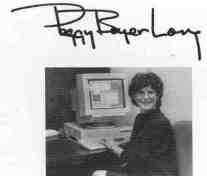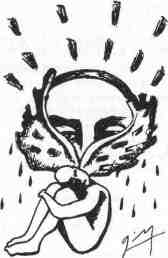 |
Home | Search | Browse | About IPO |
Staff |
Links |
|
EDITOR'S NOTEBOOK STAFF
Science and literature require by Peggy Boyer Long
Not merely, he said, shifting strategies from logic to morality. It would be cruel to undertake such a project. Against the natural order of things. It would be wrong. Ultimately, this was persuasive, and I switched to a less ambitious, though more humane project. Not a winner, but no matter. In short order, my interest moved to literature. As it turns out, I didn't have to go far. The scientific endeavor and the literary endeavor seemed two halves of one whole. At their best — and at a distance from ego and profit — both require imagining of the most profound kind. Each explores the outer limits of the possible. And envisions the consequences of the search. So it seemed appropriate to pair two essays in this issue of the magazine: One about ethical questions surrounding current scientific research; one about literature's age-old inquiry into what happens when scientific knowledge is taken beyond its intended purposes. Howard Wolinsky's essay on science begins on page 16. It is the third in a trilogy on the ethical and policy questions raised by recent advances in the biological sciences. The first two essays examined the role of ethicists and politicians in shaping public policy pertaining to life and death. In this one, Wolinsky examines the race for public research dollars. Linda Classen Anderson's essay, which begins on page 22, is about making sense of science, and sorting out wrong from right. Literature, she argues, allows us to explore the what-ifs and the what's-it-all- abouts. "When science seems to advance beyond imagination, we turn to the imaginations of storytellers to help us sort out the human dimensions of what fascinates us — and scares us." It's been decades since I sat in junior high science class. And today's scientific advances were beyond even the wildest imagination of a seventh- grader. I wonder what Mr. Fritts, who retired in 1976, would make of Dolly. 4/ June 1998 Illinois Issues |
|
Sam S. Manivong, Illinois Periodicals Online Coordinator |

